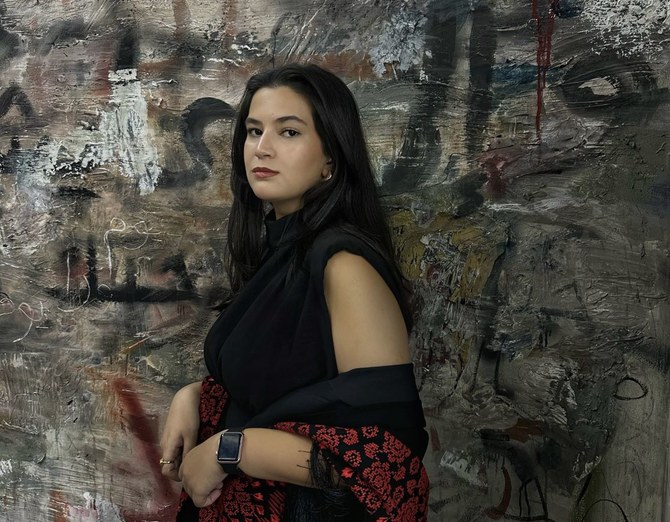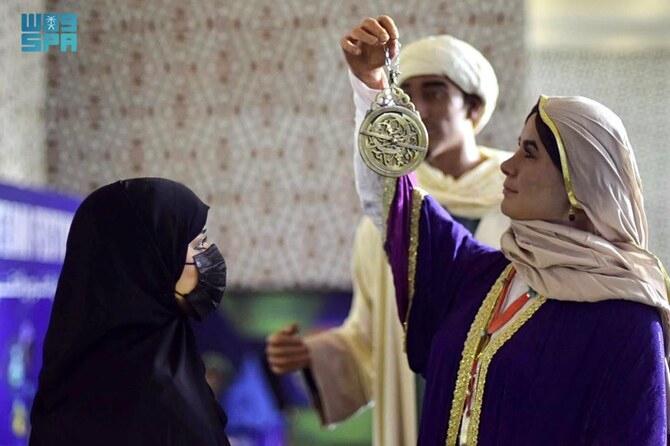She might be just 24 years old, but Palestinian artist Salma Dib already has a remarkable story to tell.
The young UAE-based artist is displaying one of her wall pieces at an exhibition called “Summer and Women” at Etihad Modern Art Gallery in Abu Dhabi.
Dib has been working on an ongoing, powerful and labor-intensive series of works which she calls “generational walls.” She mounts a mix of building materials — including cement, gravel and sand — on wooden panels featuring obscure Arabic writings. The result is visually intense, stopping viewers in their tracks.
The inspiration behind the politically charged, grey-toned imagery is the graffiti found on the walls of Syria, Jordan and Palestine.
“People can anonymously say anything on them,” said Dib, referring to the protest nature of her work. “I think I found a part of myself in those walls, because I (have always been) reserved in what I had to say . . . A lot of it is about healing because I get to say what I want.”
Born in a Syrian refugee camp, Dib’s journey has taken her to the UAE and Chicago, where she studied art and exhibited some of her works. But it hasn’t all been smooth sailing.
“You know how they say you face in your life a lot of your biggest fears? I think my biggest fear has always been uncertainty — familywise, country-wise, passport situations and my schooling. There was always that feeling of ‘Where is home?’ which I feel a lot of us really deal with,” Dib told Arab News in Dubai, where she now lives.
The artist is the descendent of a displaced Palestinian family who were forced out of their homes in 1948 as a result of the Israeli occupation. Her grandfather, then a child, reached Syria — mostly by walking — and settled there.
“There was always this inherited pain passed down to us,” she said.
Dib was born in the refugee camp of Khan al-Shih, in southern Syria, 27 kilometers from Damascus. She lived with her family on a farm, a place of which she has many happy memories and where she says her love of art began. Her grandfather built a treehouse for her and her cousins, and her aunt and uncle were artists and had a studio at the camp.
“When we were kids, we would just play with paint in their studio,” Dib recalled. “As a child, art was something for fun. In the farm, we used to always paint on furniture.”
When Dib was five, her father had the chance of a job in the UAE, and the family initially settled in Abu Dhabi.
During her mid-teens, Dib began to take art more seriously. After losing her mother at 15, art became her “alone time.”
“It was an outlet, but there were no thoughts — just doing. Making something was always part of my life,” she said.
In 2018, Dib wanted to experience life on her own and was able to travel to the US to study art. She enrolled at the School of the Art Institute of Chicago and found her artistic voice, experimenting with textile art, ceramic, and neon signage. One of her teachers encouraged her to get out of her “reserved” self: “She kept pushing me and telling me, ‘There is more to your story that you need to be showing through your art’.”
Summer and Women continues throughout the summer and open daily at the Etihad Modern Art Gallery.
source/content: arabnews.com (headline edited)
____________

Palestinian artist Salma Dib already has a remarkable story to tell. (Supplied)
__________________________________
PALESTINE /
